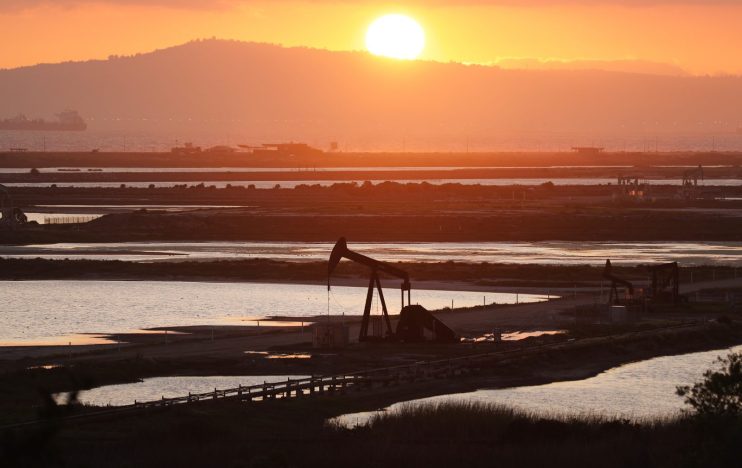Oil prices top $50 for the first time since pandemic declared

Global oil prices today rose above $50 for the first time since the world went into lockdown back in March as traders welcomed the start of coronavirus vaccination programmes.
Worldwide standard Brent Crude rose 3.5 per cent today to trade at $50.60, its highest levels since the first week of March.
US benchmark West Texas Intermediate was also up 3.8 per cent for the day, at $47.20 – the highest at which the commodity has traded since February.
As a result of the latest rise, oil prices are trading just $10 off their 2019 levels after a comeback that many would have deemed unthinkable when prices collapsed in the spring.
The breakthrough came as a number of countries began the rollout of their vaccines to the populace, with the UK the first to actually administer it to a patient.
The US is expected to follow suit as soon as this weekend, while Canada has said it will begin giving people the vaccine next week.
Before the Open newsletter: Start your day with the City View podcast and key market data
Not even a huge rise in US crude inventories – an indication that supply is outweighing demand – could keep the market down today.
Bjornar Tonhaugen, head of oil markets at analysts Rystad Energy, said: “It is not every day that the market ignores weekly builds of US crude inventories, and the latest one was of a significant size as well.
“Seeing prices moving up again today over $49 is a clear indication of the increasing market confidence towards vaccine campaigns.
“Traders welcomed indications that vaccinations campaigns will start in the US and Canada in the next few days, a development that -adding up to the UK’s rollout – is way quicker than most of the world expected just weeks ago.”
Prices are also being propped up by the decision of oil cartel Opec+ to only increase supply by 500,000 barrels a day from January.
The alliance had been expected to turn the taps back on to the tune of 2m barrels per day, but opted for a more gradual approach instead.
Opec’s production curbs have been central to the market’s recovery throughout the year. At one point in the summer, the group was blocking 10 per cent of global supply.